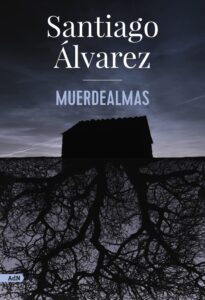
Original language: Basque
Original title: Nowhere, never
Year of publication: 2014
Translation: the author himself and Mikel Iturria (in the case of one of the stories)
Valuation: between recommendable and okay
Last book published in Spanish by the prolific writer Iban Zaldua, the Stakhanovite of Basque literature, the Taylorist of short fiction, the Fordist who produces books of stories as in the past cars came out of the Motor Town factories, to the rhythm of soul… .(I have no idea what anything I wrote means, but I assume he does, so I’m throwing it out there in case he happens to read this review.) The book, in any case, is a translation of the one published a few years ago in its original Basque, Nowhere, neveralthough I do not know if there has been any change or addition in the transfer from one language to the other.
In this book Zaldua once again shows his love for short dribbling, except for a couple of longer stories – and perhaps one of the best in the compilation -; Most of them are quite short stories, which, together with the impeccable prose and the gently ironic, not at all aggressive, humor that runs throughout the book, contributes to an easy and pleasant reading. Broadly speaking, due to their theme, these stories can be divided into three groups, which does not prevent some of them from showing more than one of the classifying characteristics. In fact, a common element to almost all narratives is the inclusion in them of some fantastic element:
- On the one hand, the stories that we could consider as “specifically Basque”, not only because of their setting in the Basque Country – since there are others that are also so, but in a more superficial way, since changing the names of the characters or places They could become, what do I know, Swedish or Italian stories-, but because they deal, in one way or another, with evil called the “Basque conflict” (misnamed because Lendakaris Muertos already explained in a long-ago song what the real one was). Basque conflict), to which this same author, in As if everything had happened, he called, simply “the thing.” It is, in this case, arguing with myself, Civil wars and its extension Extract from the Ertzaintza report… y Interview. Curiously, the first, perhaps the most inherently Basque or, at least, the most difficult to understand outside of Euskal Herria, has the most inherently Spanish ending or, at least, most difficult to understand outside of Spain. For its ambition, however, the best of all these seems to me Civil wars; It may also be the most ironic.
- The second group would be made up of stories that can be called “metaliterary”, since they deal with other books, writers and play or speculate about them, about the act of both writing and reading and the relationship between literature and reality. It’s about When he forbade me to read in bed, Kafka’s translator y “The Basque Coast” revisited. Excellent all three, especially the first two.
- Finally, the largest group, made up of stories that could be called “fantastic costumbrismo”, in the sense that they introduce fantastic elements into the most common everyday realities – there are a couple of them, however, The flies y Like the streams of gold in which the opposite happens, I believe: stories typical of Science Fiction are transferred to traditional contexts… for now-; In them we find everything from shoe stores that work like the time machine of Dr. Whoto telephone calls from one’s own conscience or a kind of body horror of the most domestic in Silkworms. I am not going to mention all of them here, but only the two stories that I liked the most: Madrea different – and funny, view that seems hard to believe – on a topic as thorny, yet trite, as Alzheimer’s or senile dementia, and Death by Twittera particularly funny story, without ceasing to be distressing, for all those addicted to the aforementioned social network that now has, at the whim of its owner’s centurion, the name of a film genre for adults.
Finally, there is the uncomfortable matter of valuation; I can be accused, surely rightly, of being a bit Jesuitical with the assessment “between recommendable and okay.” The reason is not that there is a disparate quality between the stories in the books – there are none bad, in truth – but that, by simple comparison, next to those that I liked the most, others seem, let’s say, more “pedestrian”, without That means that they are not enjoyed and they all have their point of originality. So I propose opening a new category: “Between recommendable and okay because the reviewer is too douchebag picky, but more towards recommendable, without a doubt”.
Quite a few book reviews by Iban Zaldua (+ an interview) can be found: here
Source: https://unlibroaldia.blogspot.com/2024/02/iban-zaldua-escondidas.html

